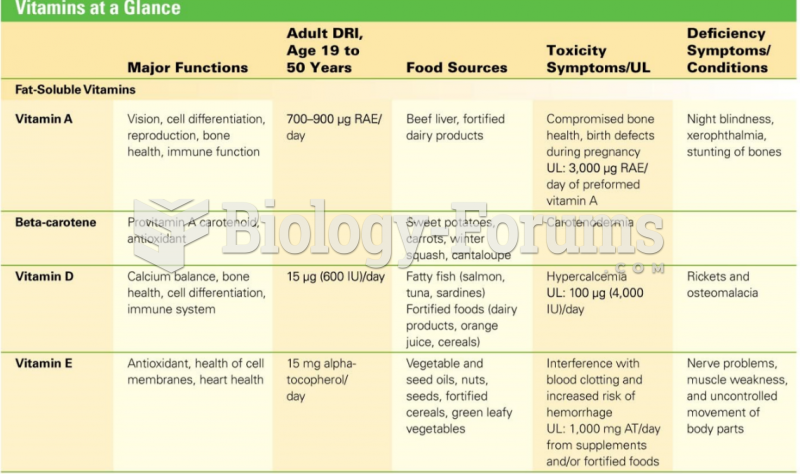Answer to Question 1
Correct Answer: 1
Rationale 1: Studies indicate that birth defects such as spina bifida can be prevented with folic acid supplementation during pregnancy.
Rationale 2: Cyanocobalamin (vitamin B12) deficiency does not cause neural tube defects such as spina bifida.
Rationale 3: Spina bifida is not associated with ascorbic acid (vitamin C) deficiency.
Rationale 4: Manganese deficiency during pregnancy does not cause spina bifida in newborn infants.
Global Rationale: Folic acid (vitamin B9), is often highlighted as a need in pregnancy because it prevents birth defects such as spina bifida, other neural tube problems, and congenital heart conditions. Because birth defects can take place early in pregnancy, taking prenatal vitamins is recommended if a woman is trying to get pregnant.
Vitamin C, manganese, and vitamin B12 are not implicated in this protection.
Answer to Question 2
Correct Answer: 2
Rationale 1: Blood urea nitrogen, urine creatinine, and urinalysis assess renal status but not cyanocobalamin (vitamin B12) in pernicious anemia.
Rationale 2: Vitamin B12 is essential for maturation of blood cells, which can be assessed by monitoring the client's reticulocyte counts, erythrocyte, hemoglobin, and hematocrit.
Rationale 3: Liver function studies are not used to assess the effectiveness of cyanocobalamin for pernicious anemia.
Rationale 4: Serum sodium, potassium, magnesium, and chloride levels are not affected by vitamin B12.
Global Rationale: Vitamin B12 is essential for maturation of blood cells, which can be assessed by monitoring the client's reticulocyte counts, erythrocyte, hemoglobin, and hematocrit. Renal and liver function would be evaluated but are not directly reflective of treatment for pernicious anemia. Electrolytes are not affected by vitamin B12.







